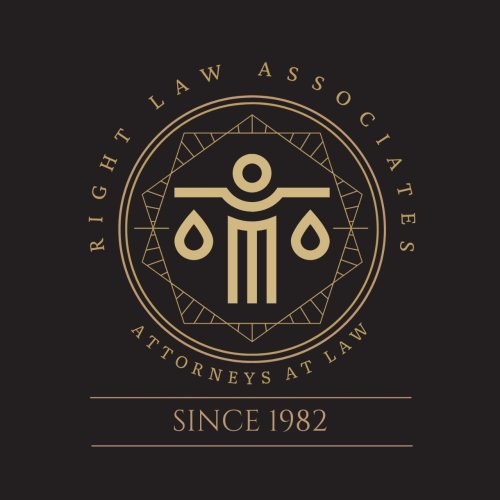Best Government Contract Lawyers in Rawalpindi
Share your needs with us, get contacted by law firms.
Free. Takes 2 min.
List of the best lawyers in Rawalpindi, Pakistan
About Government Contract Law in Rawalpindi, Pakistan
Government contract law in Rawalpindi, Pakistan refers to the legal framework that governs agreements between the government and private entities for the provision of goods or services. These contracts are subject to specific rules, regulations, and procedures that must be followed by both parties involved. The purpose of these laws is to ensure transparency, fairness, and accountability in government procurement processes.
Why You May Need a Lawyer
There are several situations where you may require legal assistance in government contracts:
- If you want to bid for a government contract and need guidance on the bidding process and legal requirements.
- If you believe your rights have been violated during the procurement process or if you have been unfairly treated.
- If you have concerns regarding contract performance, disputes, or breaches.
- If you need assistance in reviewing and negotiating the terms and conditions of a government contract.
- If you are involved in litigation related to a government contract.
Local Laws Overview
Local laws in Rawalpindi, Pakistan that are particularly relevant to government contracts include:
- The Public Procurement Regulatory Authority (PPRA) Ordinance, 2002: Regulates public procurement processes and provides guidelines for contract management.
- The Punjab Procurement Rules, 2014: Provides rules and procedures for procurement by government entities in Punjab province.
- The Public Procurement Rules, 2004: Outlines detailed procedures for public procurement at the federal level.
Frequently Asked Questions
1. Can foreign companies bid for government contracts in Rawalpindi, Pakistan?
Yes, foreign companies can participate in government contract bidding as long as they meet the eligibility criteria set by the relevant authorities. However, they may be subject to additional requirements and restrictions.
2. How can I find government contract opportunities in Rawalpindi, Pakistan?
You can find government contract opportunities by regularly monitoring public procurement websites, such as the PPRA website, where government entities publish their procurement notices. You can also engage with relevant government departments for information on upcoming opportunities.
3. How can I challenge a government contract decision?
If you believe a government contract decision is unfair or violates the applicable laws, you can file a complaint with the relevant appellate authority within the designated timeframe. It is recommended to seek legal advice to guide you through the process.
4. What remedies are available if a government contract is breached?
If a government contract is breached, remedies may include seeking damages, specific performance, termination of the contract, or any other relief specified in the contract or allowed by law. The specific recourse will depend on the circumstances of the breach.
5. What are the potential risks of non-compliance with government contract laws?
Non-compliance with government contract laws can lead to legal consequences, such as contract termination, financial penalties, suspension from future bidding opportunities, and damage to reputation. It is crucial to ensure strict adherence to the applicable laws and regulations.
Additional Resources
- Public Procurement Regulatory Authority (PPRA) - https://www.ppra.org.pk
- Punjab Procurement Regulatory Authority (PPRA) - http://www.ppra.punjab.gov.pk
- Ministry of Finance, Government of Pakistan - http://www.finance.gov.pk
Next Steps
If you require legal assistance in government contract matters, it is recommended to reach out to an experienced lawyer specializing in government contract law. They can provide tailored advice based on your specific situation and guide you through the legal process.
Lawzana helps you find the best lawyers and law firms in Rawalpindi through a curated and pre-screened list of qualified legal professionals. Our platform offers rankings and detailed profiles of attorneys and law firms, allowing you to compare based on practice areas, including Government Contract, experience, and client feedback.
Each profile includes a description of the firm's areas of practice, client reviews, team members and partners, year of establishment, spoken languages, office locations, contact information, social media presence, and any published articles or resources. Most firms on our platform speak English and are experienced in both local and international legal matters.
Get a quote from top-rated law firms in Rawalpindi, Pakistan — quickly, securely, and without unnecessary hassle.
Disclaimer:
The information provided on this page is for general informational purposes only and does not constitute legal advice. While we strive to ensure the accuracy and relevance of the content, legal information may change over time, and interpretations of the law can vary. You should always consult with a qualified legal professional for advice specific to your situation.
We disclaim all liability for actions taken or not taken based on the content of this page. If you believe any information is incorrect or outdated, please contact us, and we will review and update it where appropriate.










